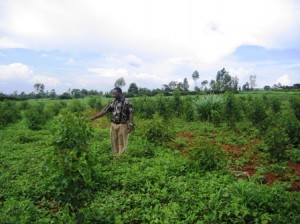Friends of the Earth International (FOE) has released a report about Africa’s move to produce biofuels to help meet the global needs of renewable energy. “Africa, up for grabs: the scale and impact of land grabbing for agrofuels” looked at 11 African countries and found that five million hectares of land, or an area the size of Denmark, is being acquired by foreign companies to produce biofuels, mainly for European markets. Dubbed “land grabbing,” the majority of entities entering the country are European and Chinese companies with Brazil making a play as well.
 According to FOE, the purpose of the report was to take a closer look at these land deals and determine how many of them are for agrofuels and how they will affect local communities and the environment. In the report the authors write, “although information is limited, there is growing evidence that significant levels of farmland are being acquired for fuel crops, in some cases without the consent of local communities and often without a full
According to FOE, the purpose of the report was to take a closer look at these land deals and determine how many of them are for agrofuels and how they will affect local communities and the environment. In the report the authors write, “although information is limited, there is growing evidence that significant levels of farmland are being acquired for fuel crops, in some cases without the consent of local communities and often without a full
assessment of the impact on the local environment.”
The report says that many African countries are waking up to the realities of biofuels and have halted their biofuels programs. Others, they say are moving forward. FOE offers several actions that they believe should be taken including putting a stop to land grabbing; re-prioritize political priorities that include local sustainable farm programs and energy efficiency brought about through public transportation, walking and cycling; and creating fair and appropriate land deals.
In a press release, Mariann Bassey, food and agriculture coordinator for Environmental Rights Action/Friends of the Earth Nigeria said, “The expansion of biofuels on our continent is transforming forests and natural vegetation into fuel crops, taking away food-growing farmland from communities, and creating conflicts with local people over land ownership. We want real investment in agriculture that allows us to produce food and not fuel for foreign cars.”
The report points out that jatropha, often hailed as a wonder crop for biodiesel production, is actually one of the worst enviornmental offenders and claim that those who have converted food crops to this biofuels crop, can not make a living.
In conjunction with the report, FOE is calling for the EU to scrap its biofuels policy and asking governments to invest in environmentally friendly agriculture and decrease the energy used for transportation through conservation efforts.

